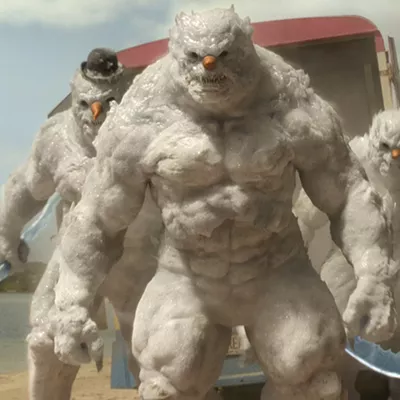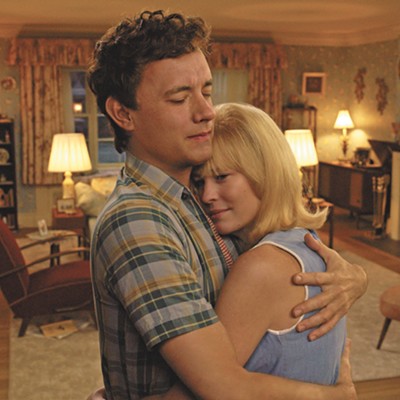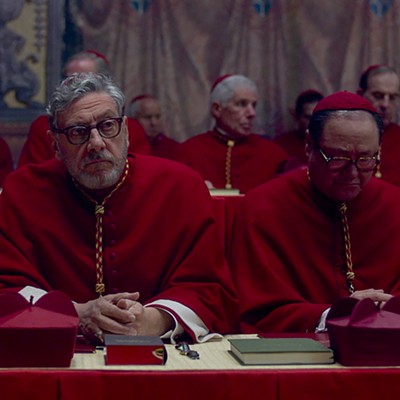Japanese animation icon Hayao Miyazaki wasn't going to make another film, but we can all be grateful he did.
Untethered from narrative convention, The Boy and the Heron boldly launches us into another magnificently animated Studio Ghibli world where every frame is a vast painting. It is a vision you can get lost in, which is precisely what happens to the movie's central character.
When we first meet the young Mahito Maki (voiced by Soma Santoki / English dub by Luca Padovan), he's experienced a devastating loss. In an opening scene — one the boy and the subsequent film remain haunted by — his world is consumed by a terrifying fire when a hospital in Tokyo is bombed during World War II. Mahito's mother is killed, leaving him suddenly lost in life. His mind keeps bringing him back to the deadly fire, which Miyazaki presents in inescapably painful detail. It strikes awe and sadness to see the overwhelmingly vibrant colors of the roaring blaze blur into a more shapeless yet no less frightening form. It is as if we are viewing this moment in time through the tears of a son losing his mother.
All of this comes in only the first part of The Boy and the Heron, but like any such death, it informs everything. When Mahito and his father move away from the city to the country, it offers no respite from the immensity of their loss. Instead, the patriarch does plenty of posturing about protecting his son, yet is incapable of helping him heal.
As Mahito goes looking for salvation, initially even harming himself in a moment of stark yet bloody despair, something else entirely finds him. Specifically, a gorgeous heron (voiced by Masaki Suda / Robert Pattinson) grows nearer and nearer to the boy. When it begins to speak to him, telling him of how he can bring him to his mother, Mahito gets drawn into another realm lurking just beyond our own. Everything in the film is then meticulously constructed just as it is fittingly slippery, like the vision of his mother that becomes cascading water when Mahito tries to reach out to her.
The journey the film takes us on is classic Miyazaki, with plenty of joyous creations that showcase more imagination in a single scene than most directors could hope to capture in a lifetime. But it also feels like something new. With every discovery Mahito makes, it's like the longtime director is uncovering ideas at the core of all his films.
The Japanese title of this one, How Do You Live?, shares a thematic interest with the 1937 novel of the same name by Genzaburo Yoshino, even though their respective stories are quite different. The Boy and the Heron is a more literal title and — considering how some North American audiences who saw its international premiere at this year's Toronto International Film Festival were perplexed by elements of it — it may have been an attempt to get them in the door for a film worth cherishing just as you grapple with it. After all, we will not get many more such works from Miyazaki.
The filmmaker's previous film, 2013's less magical though still existential The Wind Rises, was believed to be his last before retirement. It felt like a fitting coda to a body of work with already resonant and stirring animated films, from Princess Mononoke to Spirited Away. The Boy and the Heron was again reported to be Miyazaki's final film, but that too may be short-lived. Whatever the case, it is no less essential to understanding him as an artist, filmmaker and person.
In a world of chaos and loss, films like this bring into focus how it is that we carry on. Friendship, family, connection and love are what the director holds up once more as the most powerful forces in the world. It is a work overflowing with wonder, imbued with emotional heft via a soaring score by Miyazkai's longtime collaborator Joe Hisaishi. This is all molded together into a story of life, death and everything in between with one of the most shattering endings — one that is right up there with the director's best.
So how do you live? One can only hope through art as audacious, honest and beautiful as The Boy and the Heron. ♦





















